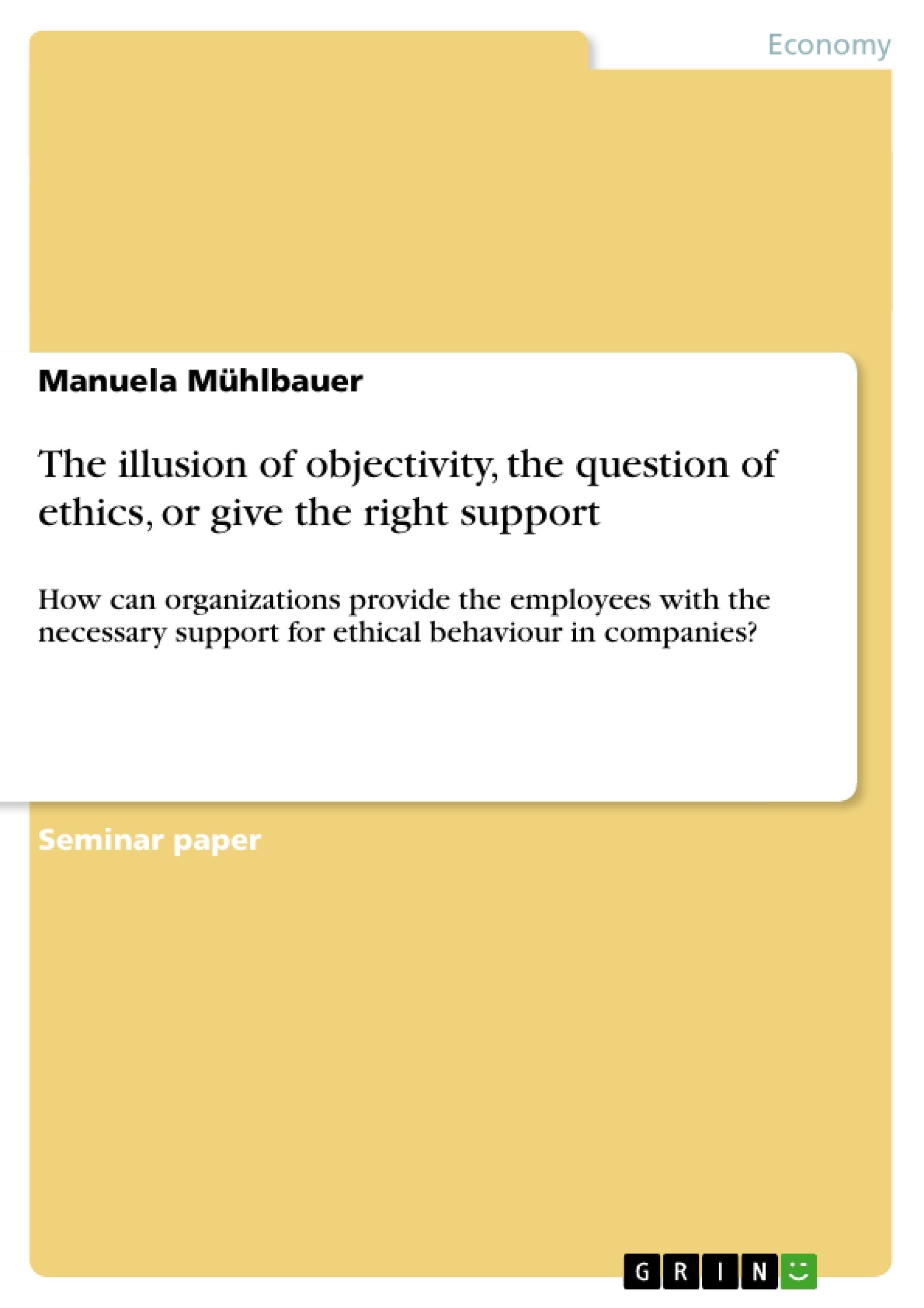The topic of this paper might lead the cursory reader to the assumption that this is another countless academic paper about „Ethic“. But “Ethic” is a topic, which is more than a current interest, and it belongs to each of us. The literature today tends to value independence, encouraging people to become liberated and do their own thing. The reality is that we are interdependent, and the independent model is not optimal for use in an interdependent environment that requires leaders and team players.
Sometimes it is necessary to take a deeper look into value systems of persons, environments, and organizations. The main question is ”How can people survive with integrity in the business environment?” and “How can organizations provide the employees with the necessary support for ethical behaviour in companies?”.
The problem with relying on the Personality Ethic is that unless the basic underlying paradigms are right, simply changing outward behaviour is not effective. We see the world based on our perspective, which can have a dramatic impact on the way we perceive things. The character Ethic assumes that there are some absolute principles that exist in all human beings. Some examples of such principles are fairness, honesty, integrity, human dignity, potential and growth. Sometimes principles contrast with practices in that practices arte for specific situations whereas principles have universal application. And especial for these situations it is necessary to have a “code of conduct” to lead the organization into an ethical direction, and to give the right support.
Inhaltsverzeichnis (Table of Contents)
- 1. Introduction
- 2. Ethics
- 2.1 Ethics and Moral
- 2.2 Doing the right things
- 2.3 Fair behavior in business
- 2.4 Why it is so difficult to be an ethical person?
- 2.5 One way to solve the ethical dilemma in companies.
- 3. Conclusion
Zielsetzung und Themenschwerpunkte (Objectives and Key Themes)
This assignment aims to provide an overview of the concept of ethics, specifically in the context of professional life, with a focus on the complexities and challenges of ethical decision-making within businesses. It explores the relationship between ethics, morality, and laws, highlighting the gray areas that arise from cultural and individual value systems.
- The concept of ethics in professional life and its relation to morality.
- The difficulty in achieving objective decision-making due to individual and cultural value differences.
- The complexities of ethical decision-making in business environments.
- The importance of ethical behavior and the need for ethical guidelines and codes of conduct.
- Exploring strategies and approaches to fostering ethical behavior within organizations.
Zusammenfassung der Kapitel (Chapter Summaries)
- Chapter 1: Introduction: Introduces the topic of ethics in the context of professional life and highlights the current relevance of this topic in business and society. It also introduces the concept of an ethical dilemma and its importance for organizational policies.
- Chapter 2: Ethics: Discusses the concept of ethics in detail, examining its relationship with morality, values, and laws. It addresses the challenges of ethical decision-making in business contexts, particularly the impact of varying cultural and individual value systems.
Schlüsselwörter (Keywords)
The core concepts of this assignment revolve around ethics, morality, professional life, decision-making, business ethics, cultural differences, value systems, and organizational policies. It also explores the challenges and complexities of achieving objectivity in ethical decision-making processes.
- Citar trabajo
- Executive MBA Manuela Mühlbauer (Autor), 2004, The illusion of objectivity, the question of ethics, or give the right support, Múnich, GRIN Verlag, https://www.grin.com/document/49901




